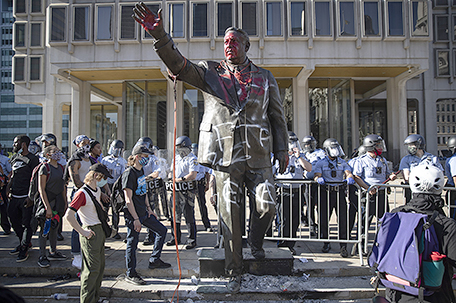
ABOVE PHOTO: In this Saturday, May 30, 2020 photo police stand near a vandalized statue of controversial former Philadelphia Mayor Frank Rizzo in Philadelphia, during protests over the death of George Floyd, who died May 25 after he was restrained by Minneapolis police. Workers early Wednesday, June 3 removed the statue which was recently defaced during the weekend protest. (AP Photo/Matt Rourke)
If there’s one thing that 2020 did consistently, it chose to bring the pain.
By Denise Clay
Among the people we lost in 2020 was actor Tom Lister Jr., known better to most of us as “Tiny” Lister.
Among Lister’s better known roles was “Deebo”, the bully that harassed everyone in his Compton, California neighborhood from the “Friday” movies.
In the first “Friday” movie, which I confess I didn’t watch until about five years ago, Deebo is a busy dude, doing everything from stealing the gold chain that someone’s grandmother gave them, to threatening to, and in many cases, beating people up to send a message of fear.
That is, until one of the bullied, Craig (Ice Cube), decides he’s had enough. He challenges Deebo to a fight, and for most of it, the rather large bully is using Craig as a punching bag.
But when Craig strikes back, and, to paraphrase Smokey (Chris Tucker), Deebo gets “knocked the %$#* out!
For many, if not all of us, 2020 was probably the most Deebo year we’ve had in a while. From a virus that kept everyone inside, to a White House whose actions didn’t help, to an election that’s STILL going on, and an economy for which uncertain was an understatement, 2020 knocked everyone around.
And that doesn’t even include the deaths of Breonna Taylor, George Floyd, Ahmaud Arbery and others who died at the hands of police and the fact that not even a global pandemic can keep Philadelphians from shooting each other.
It was also a year where, in addition to Deebo, we lost The Black Mamba, The Conscience of the Congress, the Black Panther, a Hidden Figure and the Notorious RBG.
But it wasn’t all bad. The year ended with two COVID-19 vaccines, one financed by singer, actress, and all-around saint Dolly Parton. Philadelphians joined the rest of the world to take to their porches and dance in honor of the nation’s frontline workers. People used their time indoors to do things like make bread or, in my case, learn bartending.
While I know you probably don’t want to, let’s take a look back at 2020…
Bye, corona!
Back in January, the folks at the World Health Organization started noticing a pretty nasty virus making its way through China. It also noticed that said virus, which it was calling COVID-19, was killing people.
So, the WHO did what the organization has done for years, it told its member countries that hey, there’s this nasty virus going around that’s killing whole families. There’s no cure and there’s no vaccine for it yet, so to avoid getting it, don’t gather in large groups, wear a mask, wash your hands and do everything you can to protect your population.
Whole countries began shutting down completely down to stop the spread of the virus. While Italy and China were out of commission a lot longer than most, they got the virus largely under control despite the occasional flair up.
In fact, you can go to a concert in New Zealand right now.
But President Donald Trump decided to take a much more hands-off approach to America’s coronavirus response. In fact, it was so hands-off, that it resembled inaction fueled by total denial, something that Washington Post reporter Bob Woodward brought to light when promoting his latest book.
Because of this, states had to take their coronavirus response into their own hands, which made said response a little uneven.
Some states made regional pacts — Pennsylvania was involved in one that included New York, Delaware, and Connecticut — to do such things such as institute mask mandates, shut down indoor dining, gyms and spectator sports, and enforce quarantines to keep their states safe.
But that wasn’t without its challenges. A man in Michigan was shot and killed when he tried to enforce a mask mandate at the store in which he worked security. The Pennsylvania and Michigan legislatures were among the entities that had to deal with armed protestors due to not being able to eat indoors or get a haircut. Restaurant owners in Philadelphia sued Mayor Jim Kenney and city officials for indoor dining mandates.
The men who threatened to kidnap and behead Michigan Gov. Gretchen Whitmer over the regulations were arrested by the FBI.
But other states, most notably Florida and the Dakotas, decided to follow Trump’s lead and take the hands-off approach and continue to have large gatherings, such as motorcycle rallies, college football games and the Fourth of July celebration that Trump had at Mount Rushmore.
In March, Congress —in a rare example of doing something that Americans need them to do — passed the Coronavirus Aid, Relief, and Economic Security, or CARES Act, to try and help Americans who have been hit hard by the shutdowns that have been made necessary by the coronavirus.
But it wasn’t enough to keep places like Philadelphia to have to make some economic choices that it really didn’t want to make. Mayor Jim Kenney presented a revised fiscal year 2021 budget, due to a $650 million hole blown into it by the coronavirus. The $4.9 billion pact includes cuts to the city’s police and fire departments and made the anti-poverty programs, extensive education spending and improvements such as expanded street sweeping that the Mayor had proposed have to be put on hold.
As of press time, the Commonwealth of Pennsylvania has 571,551 cases of the coronavirus and Philadelphia has 81,063, according to the Pennsylvania Department of Health website.
The other pandemic
In February, former Portland, Oregon Police Chief Danielle Outlaw became the first Black woman to serve as Philadelphia’s police commissioner, replacing interim Commissioner Christine Coulter.
From that moment on, it became Outlaw’s job to deal with what many are calling “Philadelphia’s Other Pandemic.”
The pandemic of gun violence.
At press time, 478 Philadelphians have been lost to homicide.
Despite the city’s coronavirus lockdown, the summer was particularly bloody. Among those killed was Zamar Jones, a 7-year-old who was playing in his front porch on a warm August day when his life was taken.
City Councilman Kenyatta Johnson and Curtis Jones, co-chairs of Council’s Special Committee on Gun Violence, have had several hearings where Outlaw, District Attorney Larry Krasner and Vanessa Garrett Hartley, Deputy Managing Director for Criminal Justice and Public Safety, have been put on the hot seat to relate the efforts they’re making to solve the problem.
Among the efforts that Council has taken itself is to write a letter to the Bureau of Alcohol, Tobacco and Firearms asking them to look into where the guns that are being used in these shootings are coming from. While they sent that letter to the Pennsylvania Legislature in the hope of getting them to join them in their request, it’s highly unlikely that the legislature — which is Republican controlled and constantly negates the city’s gun control legislation through preemption laws — will do so.
But that hasn’t stopped Council from making efforts to control the violence on their own. Over the last few months, Council has passed legislation regulating so-called “ghost guns,” which can be made at home and don’t require registration, and mandating conflict resolution in Philadelphia’s schools.
Council is also attempting the addressing some of the root causes of the gun violence through legislation it passed in 2020. Since poverty and gun violence seem to go hand in hand, Council created the “New Normal” budget. This $25 million is to be directed at healthcare, healthy food options, affordable housing, anti-poverty programming, and job training with an eye toward getting the rate of gun violence down.
Also, voters gave the families impacted by gun violence a place to go for help in dealing with the issues connected to their loved one’s death. A charter change was passed that will create an Office of the Victim Advocate. This office will give families a central hub that will help them know what their rights are, what services are available to them, and how to access them, said Councilmember Johnson, the sponsor of the ballot question.
The goal is to have this office up and running by late 2021.
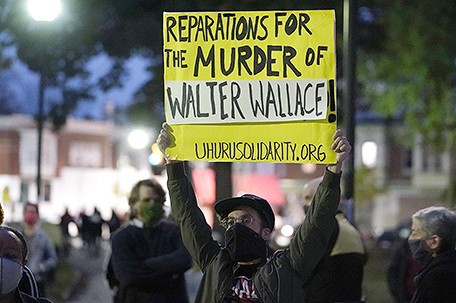
Police on my back
When Walter Wallace Jr. was shot by police in West Philadelphia in October, the death provided some ballast to a ballot question that became one of the four ballot questions that were approved by Philadelphia voters in November.
That question: “Should the City Charter be amended to create a stronger Citizen’s Police Oversight Commission?”
Voters decided to make that commission a reality when it approved the measure on Election Day. In theory, this commission, which will be overseen by Philadelphia City Council would also have more power than the current board in that it could issue subpoenas and collect evidence, such as the footage from police officer’s body cameras. The current commission, which is overseen by the Mayor’s office, lacks that authority.
Or at least that’s the plan. There are no details yet on whether or not City Council will grant this commission the power it hopes to have; and looming over everything is the threat of legal action on the part of the Fraternal Order of Police.
In fact, the FOP is probably going to be busy due to the November elections and some of the actions of City Council. In November, voters decided to put the prohibition of the practice of stop and frisk into the city’s charter. Earlier this year, City Council passed a law that would mandate all police contracts be subject to a public hearing before they’re passed.
This was a particularly challenging year when it comes to police involved shootings both locally and nationwide. From the death of George Floyd, which led to Council passing the “Let Philly Breathe” bill designed to make the restraint that former Minneapolis Police Officer Derek Chauvin used to allegedly kill Floyd, hearings in Council on the protest on I-676 that was ended by tear gassing protestors, activists have been demanding more accountability on the part of police.
Another thing that the protests demanding justice for Floyd, Breonna Taylor in Louisville, Ahmaud Arbery, Manuel Ellis and others have managed to do is to make the city move a little faster when it came to the statue of former Mayor Frank Rizzo. Activists had been calling for the statue commemorating the former Police Commissioner, and, to many, the poster child for police brutality to come down from the Municipal Building.
It was removed a few months ago.
“You got knocked the #$*& out”: Election 2020
If you were a reporter covering politics in one of the 11 so-called “swing states” that news organizations and others have decided are the center of the universe when it comes to the Electoral College and who ultimately wins it, you were pretty busy this election season.
From Election Night on Nov. 3, to the Electoral College certifications on Dec. 14, to the Jan. 6, 2021 meeting of Congress that’s supposed to make things official, political reporters from these swing states, myself included, have been caught in a time loop.
In case you’re wondering why that is, it’s because President Donald Trump is seriously talking to people about finding a way to negate the electoral results in those states. From having members of Congress challenge the results during the Electoral College certification process, to declaring martial law and forcing these states to vote again, nothing appears to be off the table.
In one of the few times that the Electoral College and the popular vote have matched in the last five election cycles, the man that President Trump kept referring to as “Sleepy” Joe Biden defeated him and will be inaugurated on Jan. 20, 2021. Thus, the talk of martial law.
In an election that had historic turnout due to people not being forced to brave the coronavirus in order to make their voices heard, Trump used the delay in counting votes in places like Pennsylvania — which wasn’t allowed to start counting the votes until Election Day — to gin up conspiratorial claims of voter fraud.
When those claims were taken to court, they were dismissed for lack of evidence. The Supreme Court, which Trump made sure was at full strength with Republicans in the hopes that the court would overturn the election results for him, refused to hear his claims.
Biden becomes the 46th president a mere four years after serving his last day as vice president in a historic administration, that of Barack Obama, the nation’s first Black president.
His administration will be historic as well, as Biden will be joined by California Sen. Kamala Harris, who becomes the first woman, first Black woman, and first person of Asian descent to hold one of the nation’s two highest office.
Like everything else in 2020, the coronavirus influenced the campaign. As Trump threw rallies that brought his supporters together — and in the case of former Republican presidential candidate Herman Cain, took them out — Biden and Harris did much of their campaigning via Zoom and held rallies where social distancing was achieved by everyone participating via their cars.
Both Biden and Harris came to Philadelphia to campaign. Harris was in West Oak Lane as the guest of Congressman Dwight Evans, City Councilmember Cherelle Parker and actress/activist Sheryl Lee Ralph while Biden was in town on Election Day to interact with voters.
The conventional wisdom says that for many Americans, the way that President Donald Trump handled the COVID-19 crisis was the last straw. But while that may have been the case, it was just one of the many head scratching things that the nation’s 45th president did in 2020.
The Year In Trump began with the trial that many of the people who voted to switch the House of Representatives from Republican to Democratic in 2018 had been waiting for. The House voted out Articles of Impeachment on Trump for abuse of power and obstruction of Congress for threatening to withhold aid to the Ukraine unless the country helped him dig for dirt on Biden and his son, Hunter. It was announced shortly before the end of the year that Hunter Biden was being investigated by the Justice Department regarding his taxes, but that outgoing Attorney Gen. William Barr, in a rare showing of independence, decided not to release that information during the election.
But while the House was willing to demand to know what actually happened here, like many other things like gun control legislation, COVID-19 relief and anything related to enhancing health care, the impeachment went nowhere in the Senate.
After a long, long wait for a new CARES Act, Congress passed a new act this week. Trump, who has largely been absent from negotiations on the bill, demanded more money for individuals and families in the bill and has threatened to veto it before Congress goes home for the holidays.
It was things like this that led to the creation of the Lincoln Project, a group of Republican political operatives that decided Trump and his shenanigans were a bridge too far and that they had to rid he and his ilk from their party.
While their efforts helped Biden become the President-elect, it’s anyone’s guess what their long-term goal is.
Those we lost
I began this piece by talking about the death of “Tiny” Lister, and how he was best known for his iconic role of Deebo in the “Friday” movies.
But he wasn’t the only icon that left us in 2020, which was a year in which some of those losses hit harder than others.
The year started out with the death of former Los Angeles Laker star (and Academy Award winner) Kobe Bryant and his daughter Gianna. The two were on their way to a basketball tournament that Gianna was going to be playing in. Bryant was 41.
Supreme Court Justice Ruth Bader Ginsburg, or as she was also known, The Notorious RBG, lost her battle with cancer in September. She was 87.
Congressman John Lewis was considered the conscience of the Congress. The civil rights activist who was the youngest speaker at the 1963 March on Washington and was severely injured crossing the Edmund Pettus Bridge in Selma, Alabama, continued to get into “Good Trouble” until his death from prostate cancer in August. He was 80.
Katherine Johnson helped America go into space through her ability to calculate rocket trajectories and earth orbits. In addition to being one of the subjects of the movie “Hidden Figures”, she was given the Congressional Medal of Honor from President Barack Obama. She was 101.
During his acting career, Chadwick Boseman portrayed a lot of iconic figures, such as Jackie Robinson and James Brown. But the role that everyone remembered when he lost his battle with colon cancer was the role of T’Challa, the Black Panther, in the Marvel movie of the same name. While there will be a sequel to the movie, Marvel Studios head Kevin Feige announced that the role won’t be recast. He was 43.
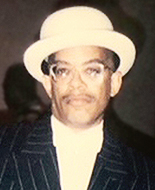
We also lost the original Bond. James Bond. Sean Connery was 90.
Locally, Philadelphia lost some icons of its own. WURD music man and activist Joey Temple died after a long illness. He was 68.

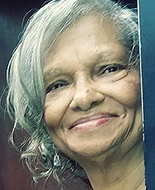
The co-founder of One Day At A Time (ODAAT), the drug and alcohol recovery program, Margaret Wells, passed at age 72, after a battle with COVID-19.

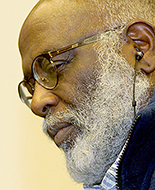
Newsman Heshimu Jaramogi was a media entrepreneur before being one was in vogue. He was the longtime publisher of The Neighborhood Leader and was a longtime presence on radio. He was 67.

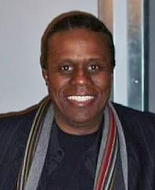
Black owned businesses lost a champion this year. There was no event in the Black community where you wouldn’t see Earl Harvey. His newspapers, The Black Professionals News, and the AC Times, told the stories of Black-owned businesses and marketed them to a public in need of services. He was 65.
Well, that’s 2020. I don’t know what 2021 has got in store for us, but let’s hope it’s not nearly as interesting as this year was.
Or at the very least, let’s hope we don’t have another pandemic to deal with…





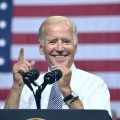
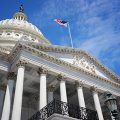










Leave a Comment